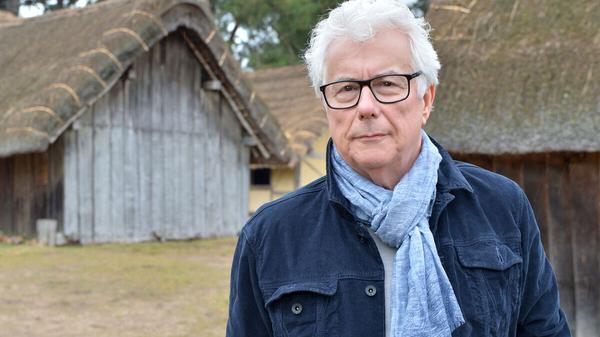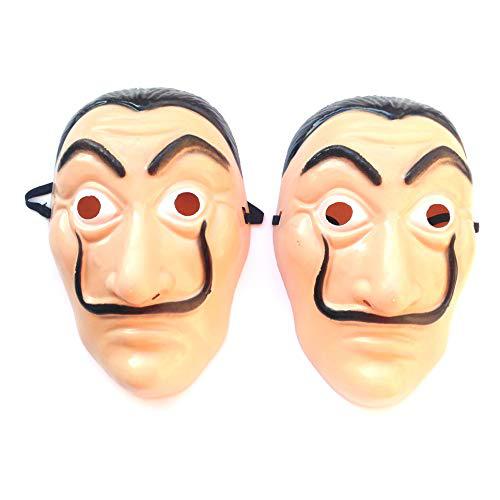Ken Follett publishes his new novel, Las tinieblas y el alba (Plaza&Janés). This is the prequel to the saga The Pillars of the Earth, the epic tale of the construction of a medieval cathedral published in 1989 and of which 27 million copies have been sold. On this occasion, the plot takes place between the end of the Dark Ages and the beginning of the Middle Ages. His characters move in the twilight of a brutal age and the beginning of a new time. Through them, Ken Follet shows the violent society of Great Britain at the time, threatened by Viking invasions.
The writer returns to Kingsbridge, the world he built in The Pillars of the Earth. If in that first installment he described the 12th century, he advanced to the 14th in A World Without End and to the 15th in A Pillar of Fire, now, in Darkness and Dawn, he goes back to the 11th century. The plot uses three main characters: Ragna, a Norman aristocrat; Edgar, a brilliant shipbuilder whose dreams will be shattered by Viking invasions and Alfred, a monk. After more than thirty years dedicated to his saga of the Middle Ages, Follet returns to the world that he likes and that displays a gallery of secondary characters in the manner of a tapestry.
Follet was born in Cardiff, Wales, but when he was ten his family moved to London. He graduated with a degree in philosophy from the University of London and worked as a reporter for the South Wales Echo, his hometown newspaper. Later he got a job at the Evening News in the English capital and during this time he published, without much success, his first novel. He left journalism and continued writing. It was his eleventh novel that became his first great literary success.
From his home in Hertfordshire, where he lives with his wife Barbara, a former Labor MP for his constituency, the British writer chats via videoconference with Vozpopuli. In this conversation he reflects on the need to review the past, his perception of the feminine -the women in his stories are strong and assertive- and also the role of the historical novel in current literary creation.
Why a prequel to The Pillars of the Earth and not the sequel to A Pillar of Fire?
I began to wonder what Kingsbridge would be like before it became a prosperous and important city. I thought of the period around the year 1000. It was a turning point in European history. It was the end of what was called in England the Dark Ages and the beginning of the Middle Ages. In that world three groups fought and competed to dominate England: the Anglo-Saxons, who lived there; the Vikings, who were constantly raiding England, and the Normans, who were on the other side of the English Channel.
With those three groups there was a lot of material to write a novel. I wanted to know how Kingsbridge became the prosperous city in The Pillars of the Earth. I found it interesting. Because whenever there is progress, there is conflict. There are people who want things to stay one way and others don't. Kingsbridge and the evolution of England seemed very promising to me for a new book.
Which of the two sagas do you feel more comfortable with: the trilogy about the 20th century, The Century or The Pillars of the Earth?
I feel very comfortable in the Middle Ages. I know her well. I have written a lot about her. It is a period that I love and I suppose it is my specialty. But I also really enjoyed The Century trilogy. I wrote it over several years. So I really enjoyed it and I'm very proud of it. Nobody has tried to portray the history of a century, except William Shakespeare. He was the only one who wrote eight consecutive plays about the fifteenth century. He is the only one crazy enough to tell the full story of a complex century. Still, I prefer the middle ages. It is the period that I like the most.
Both sagas reflect injustice, as well as political and social violence. You usually say that societies take two steps forward and one step back. Does the world today obey that logic?

I think we're still making progress and hopefully what's happening right now is a step backwards and not something permanent. I am very concerned about what I am seeing: that there are leaders who do not tell the truth, as well as the rise of nationalism in so many countries, everything that is happening is negative. But I think it is temporary. Soon we will return to the path where we were and we will continue to be a more prosperous and better society.
For Darkness and Dawn, he was inspired by the Bayeux Tapestry, from the 11th century. The Vikings and Normans did not leave much written evidence. How did it influence your writing?
It was more difficult to create that background of the story. I had to constantly look for small but significant details that could get the reader into that period. I could not include as much detail as I would have liked. For example, clothing. What did a farmer wear? a builder? a mason? I understand that they wore something like a brown tunic, but that seemed very boring to me. I wanted the clothes to reflect the personality of each person and the time in which they lived. I looked everywhere for what people's underwear looked like. I didn't get it, so I had to make it up. As for the plot, it had everything it needed. For example, the courts: I knew how they worked and what they were like, although details were lacking, I knew the general. Or the currency, how it was forged, also the marriages, the monastery, the cathedral. All that material is available.
What led you to go from the novels of your first suspense novels such as Triple (1979), Las Alas del Águila (1983), or The Key is in Rebeca (1980), for the historical novel?
I wrote suspense novels in the seventies and early eighties and at the same time I was interested in the subject of cathedrals, because I visited them a lot. I read a lot about them and learned what they were like, who built them. I began to think that it was possible to write a story about a cathedral. Make it something special, the kind of story that people will remember. I read a lot of thrillers, but once I finish it, I completely forget about the plot. I wanted to write the kind of novel that people would never forget. I want a great idea, I thought, and in fact I still think it's my best idea. I wanted to write that specific novel: The Pillars of the Earth, and this conviction pushed me to write it.
In a time of populism, the rewriting of history and the demolition of statues, how can an author approach the historical novel?
First of all, about tearing down statues. We have to constantly re-evaluate history and be realistic about it. Over the years we've realized that we're paying homage to people who did very bad things: rich men from the Victorian era, who were also slaveholders. When we put up the statue of such a man, and while he no doubt did many good things with the money he earned, he also did terrible things to earn it. I think we should be more realistic with our history. Perhaps that statue should not be in a public square but in a museum, because there it is possible to understand the good and bad things it did.
In contrast, in a public place, the statue marks him as a great man who should be respected. But if you are someone whose ancestors were enslaved or massacred by this man, then that statue is an offense and an insult and every time that person passes by, they will continue to feel insulted, because there is a gesture of respect to the person who massacred their ancestors. ancestors. I don't think you have to make statues of slavers. I don't think we are rewriting history, just reassessing it.
In this reasoning we could rewrite Otello or Carmen. Even retitle Agatha Christie's Ten Little Blacks, you see.
Why not? Ten blacks is no longer called ten blacks. It has been given another title that is not racist. In the case of Otello it is not a racist play. One of the reasons why Iago can fool Otello is because he is a foreigner and not capable of interpreting what happens in society. Not because he is black but because he is a foreigner. It doesn't matter if he was African or not. If he had been Swedish, he would also have had trouble interpreting the signs they saw in that society.
There is a work by Shakespeare that I do find very racist and anti-Semitic, The Merchant of Venice. I don't like to see her. Whenever they stage it, the producers say they will try to present it not as a racist play, but it is. I think so, that all this can be reviewed. It is not about throwing things away, and we should be able to see what is wrong. If someone wants to put on The Merchant of Venice, I'm not going to stop them, but I still think it's a racist play. There is no movement among the Jews to ban their representation, so in that sense there is no problem. But I do believe that we should review our past and our fiction, and we should see it in the light of modernity.
Are you planning on making a prequel to The Century? Or do you already consider this saga finished?
The answer to your question is I don't know. Of course, I rarely say 'no'. So maybe I do write a prequel to The Century, or maybe the sequel, or even something different. The important thing for me is that the story is interesting, that it has a good plot, regardless of the historical time in which it occurs, what interests me is the story.
How much of Ken Follet is there in the Merthin of A Pillar of Fire, the Jack Builder of The Pillars of the Earth, the Lloyd William of The Winter of the World, or the Edgard of Darkness and Dawn?
Most of the characters have a little bit of me. Edgar is a talented young man who wants to do great things with his talent. That's how I was when I was twenty a few years old. He is someone who values education, books, everything intellectual. The same thing happens to me. There is a novel whose character is a jewel thief and when writing about him, I say that he likes to take a shirt out of its packaging, unfold it and put it on. And that's one of the things I like. I add very small things of mine, but I have never created a character based on myself.
Her female characters are strong, carefree, free and brave. Shiring's Alien from The Pillars of the Earth, Caris Wooler in World Without End, Carla von Ulrich from The Winter of the World), and Ragnar from The Evening and the Morning Do you consider yourself a feminist writer before #Metoo?
In the sixties I was a teenager, which is when the second wave of feminism emerged. I was in college and I remember very well that women started saying that the way they were treated was biased and unfair. And those were the women we liked. They were our age. We wanted to stay with them, even marry them. We listened to them and what they said made a lot of sense. I remember that at that time, which was very political, we all considered ourselves equal. We would get together and talk and then something said: 'If we are so alike why are the girls always the ones who make the tea?' I realized that this was unfair, there was no reason for us not to prepare it ourselves.
It's obvious today, but it didn't look like that then. It is a simple example, but it allows us to understand how my generation did understand and adapt, but for my father's generation it was much more difficult. They had a kind of position of superiority with respect to their wives and it was very difficult for them to change that. My father could not, it was easy for me, when you are 19 years old you accept things easily, when you are 50 years old it is much more difficult to do things differently than you have done before. I am not saying that I am a feminist, I simply realized that all of them said things that were true.
Going back to the topic of women and sexuality, his female characters are very open when it comes to approaching men. One would think that in the Middle Ages they would be somewhat more self-conscious.
First of all: at all times in history, women were not all the same, of course there were some that were more timid or self-conscious, and others that were more daring. I don't see why in the Middle Ages women had to be any different. Now we talk a lot more about our sexuality. I imagine that in the Middle Ages it would not be something so common, but I am sure that there would be many women who, when they were with the man they loved, would be more open to sex and others would be more shy. I think it has more to do with personality than with the historical period in question. There are also very shy men and others very daring. There are no rules.
In Darkness and Dawn he points out the differences between normados and English. The former are more "civilized", they have prohibited slavery, they keep the law, while English society is more violent, they subdue slaves, bribe... How true to reality was this duality?
There is very strong data indicating that the Normans were a much more advanced society and even stronger militarily. Other authors and historians argue that the Anglo-Saxon culture was very advanced and sophisticated. There is little scientific data to support that argument, although there is some discussion about it.
In a world that reads less and more quickly, how do you manage to keep the reader's attention through almost 1000 pages?
The plot has to progress every five or six pages, something has to happen that changes the situation for the characters, something big like a murder or small, like a lie. But something has to come along to move the story forward. And there is another thing, the reader has to be emotionally involved in what happens in the novel. If someone is hurt, the reader should feel indignant at that, and if a character is sad, the reader has to watch the pages skip. It is about emotional reactions to the story. If this happens, the book works. If that is not achieved, the reader will get bored- And this happens in short books and long books, but even more so in long ones, because a long boring book is deadly.
After the success of The Pillars of the Earth, novels arose that tried to imitate it, not to say that they directly copied it. How are you doing?
That's a compliment. There's a saying that goes, "Imitation is the sincerest compliment. It's a sign that I'm doing it right."


